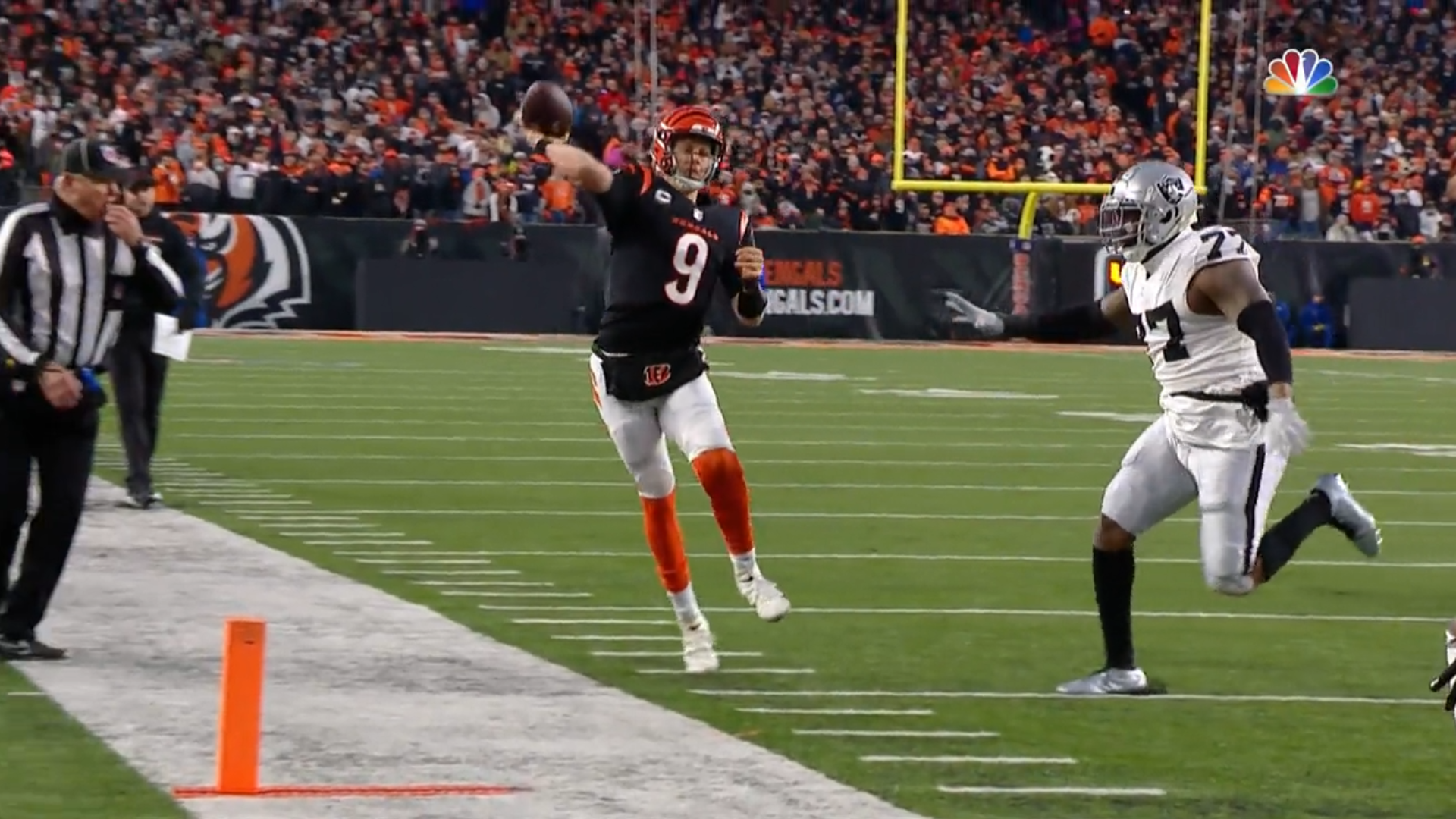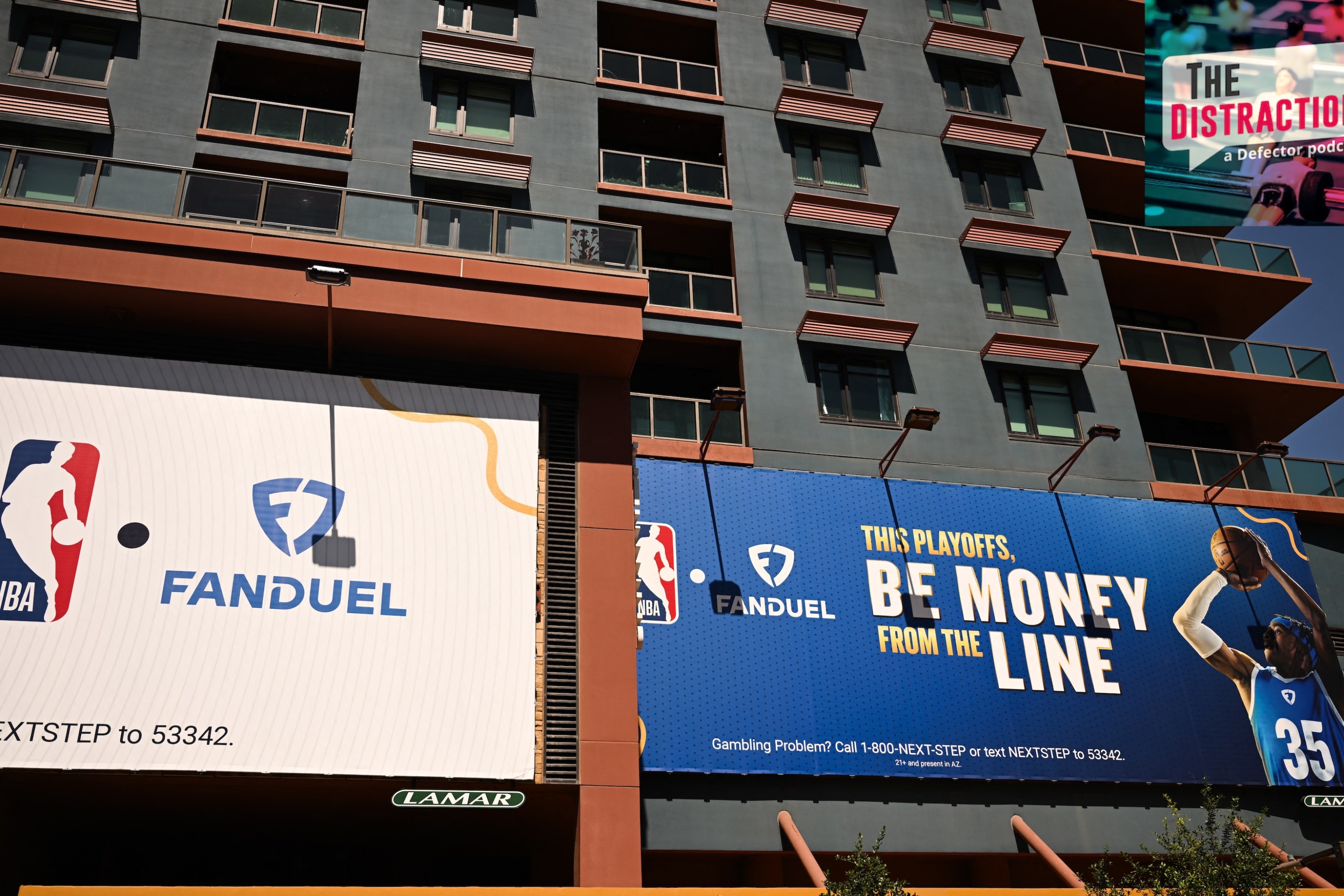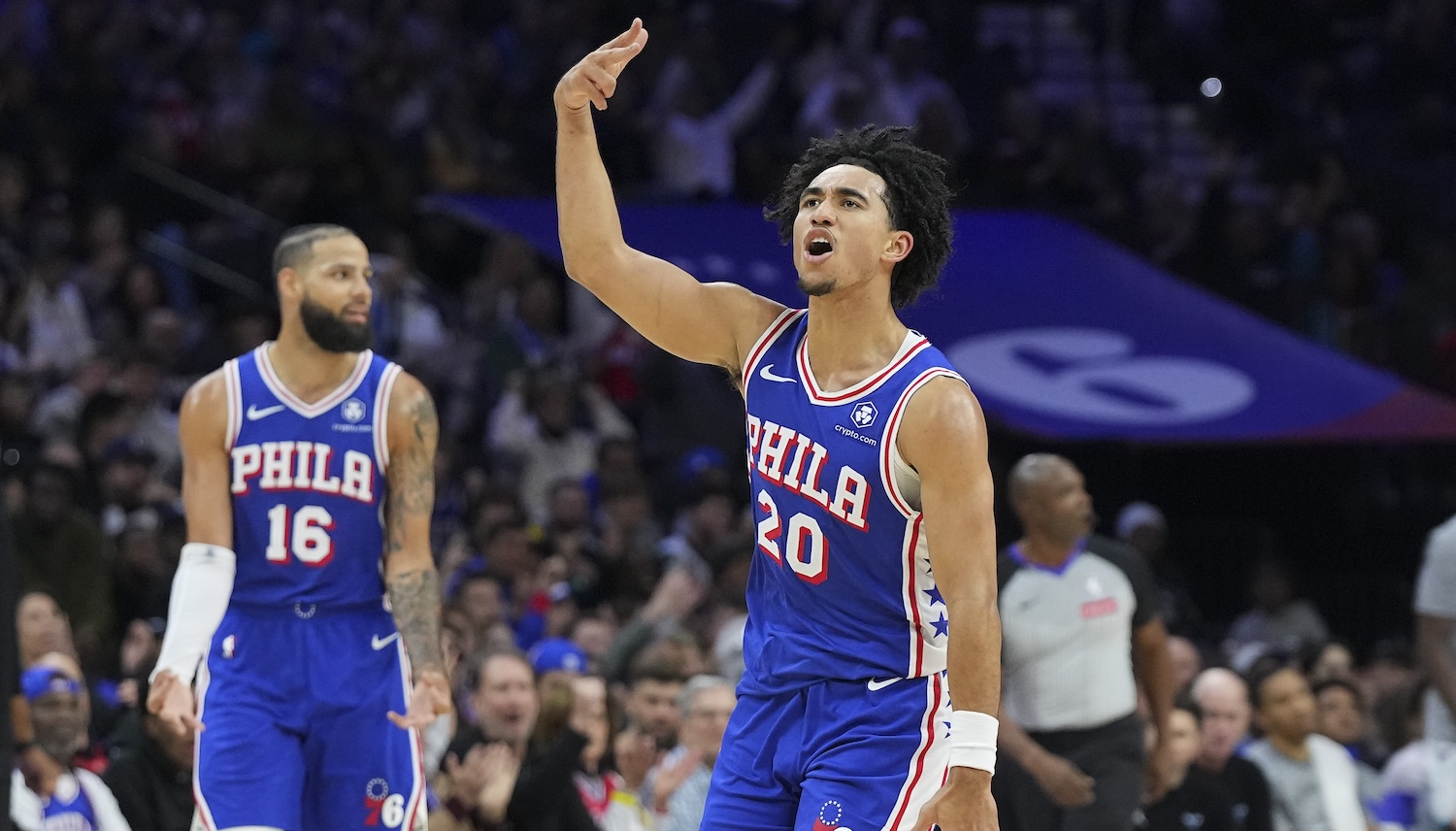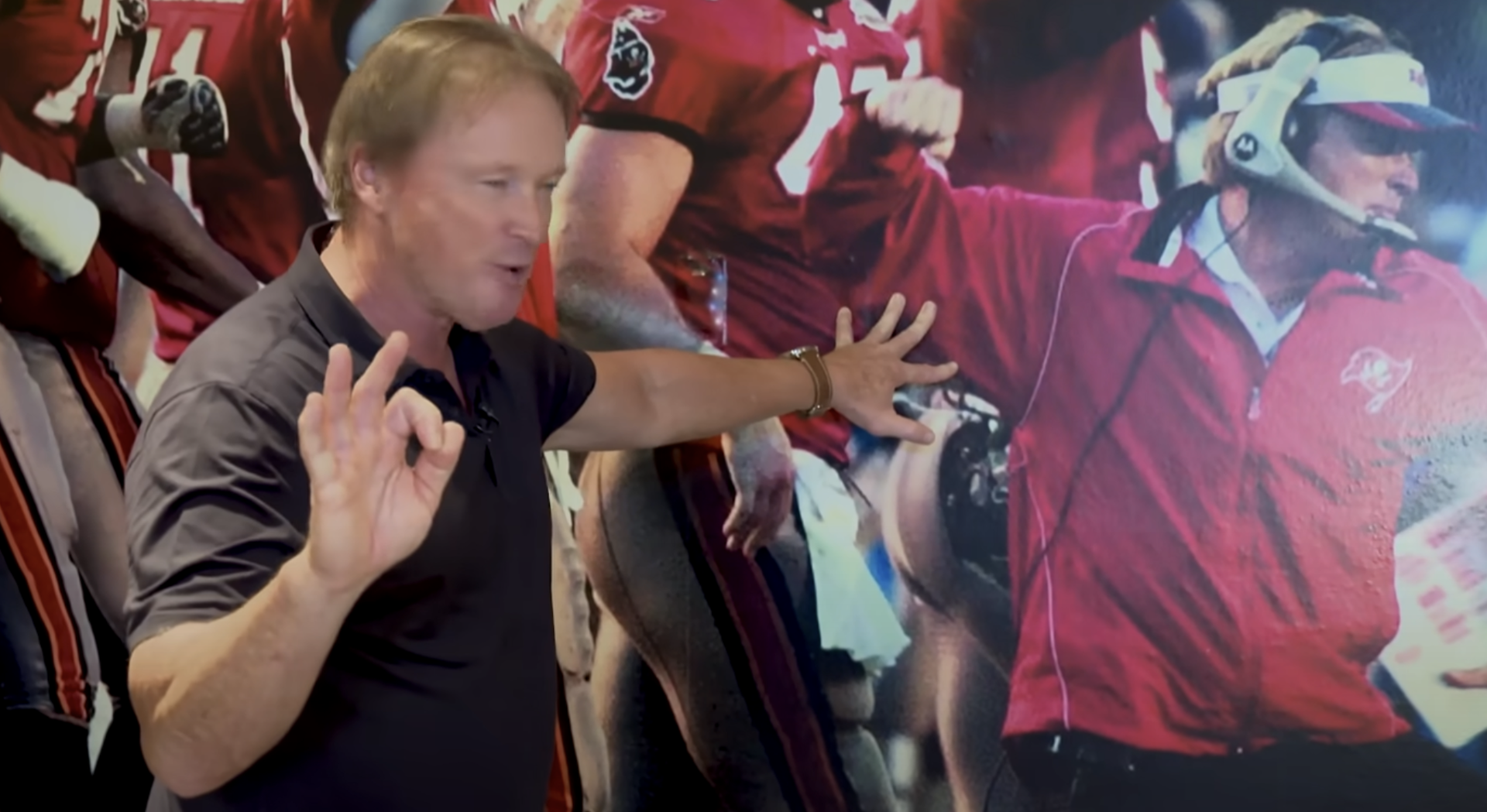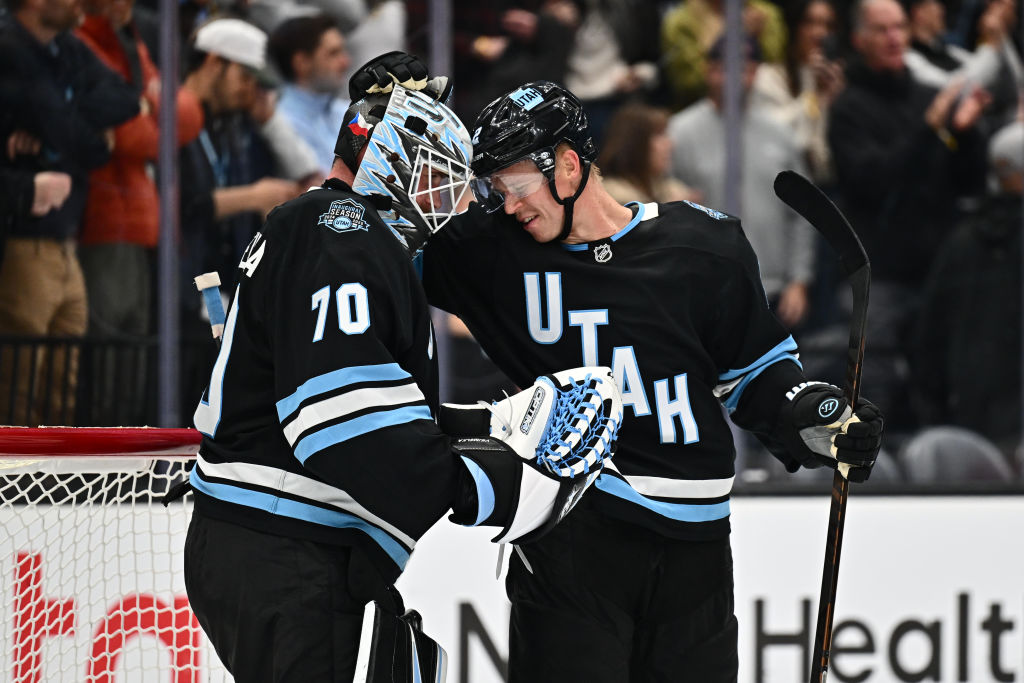The bizarre, apparently unreviewable play that stands out from the Cincinnati Bengals' 26-19 win over the Las Vegas Raiders on Saturday was the game's second touchdown, thrown by Joe Burrow to Tyler Boyd with under two minutes remaining in the first half.
With the ball at the Vegas 10, and the Bengals facing third-and-4, Burrow took the snap, stepped up in the pocket, and then rolled out to his right as far as he could go, tossing the pass to Boyd in the back of the end zone, where the receiver came down with it unchallenged. The problem, however, is that a referee blew his whistle while the ball was in the air, leading everyone watching to believe that Burrow had stepped out of bounds before throwing the pass. Take a listen for yourself:
O homem tá se sentindo em casa nos #NFLPlayoffs
— NFL Brasil (@NFLBrasil) January 15, 2022
+1 de @JoeyB no #SuperWildCard #NFLBrasil | #RuleTheJungle pic.twitter.com/CvfRQ3SVOE
Further looks at the replay confirmed that Burrow did not, in fact, step out of bounds. If you were watching the game on mute, the only thing that would appear to be amiss is Raiders safety Tre'von Moehrig's odd body language as Boyd caught the ball directly behind him. He looks like someone who heard a whistle and assumed the touchdown wouldn't count.
And it shouldn't have. When an official blows the whistle, the play is immediately over. And if it's blown by mistake while a legal pass is in the air, then the down should be replayed. But after a discussion, the refs decided to rule the play a touchdown, and while aspects of the play like the position of Burrow's or Boyd's feet on the field could be reviewed further, the part about the whistle was ineligible for another look.
The Raiders didn't make a huge deal about this obvious screw-up in the postgame. "I think that’s a good crew. I think there’s a lot of things that went on in the game, both ways," coach Rich Bisaccia said afterwards. While fans may be upset that a touchdown was unfairly counted in a game the Raiders lost by seven points, so much happened in the game's second half that it's extremely difficult to draw a line directly from this whistle to the Bengals punching their ticket for the next round.
But what should be pushed back against is the explanation given by the NFL's senior VP of officiating, Walt Anderson, after the game was over. Here's a full transcript, courtesy of The Athletic's Jay Morrison:
Pool report on the inadvertent whistle pic.twitter.com/Jlnm5ozgR0
— Jay Morrison (@JayMorrisonATH) January 16, 2022
Anderson says here that the officials believed the whistle wasn't blown until after Boyd caught the ball, and not while the pass was still in the air, making the play a normal touchdown catch. What he does not mention, however, is that this explanation can be proven false by anybody watching and listening to the play. It's not even close!
It already feels like a stretch, even in the heat of a playoff game, for a group of experienced NFL officials to say that one of their ranks blew his whistle thinking that the ball was in a receiver's hands when it was actually in midair. But the fact that, even with the clear benefit of hindsight, there's no official acknowledgement of how wrong they were is a frustrating—if, I suppose, not at all surprising—moment of dishonesty for the NFL.
Anderson seems to know that there's a problem with his explanation, because he eludes the question of which official specifically blew the whistle. The replay above shows the official right next to Burrow holding the whistle in his mouth, while the one in the back of the end zone has his hands at his sides, which heavily implies that the original intent was to blow on Burrow for stepping out. Anderson's answers show either a serious lack of knowledge on his part or a strong desire to keep an incorrect call from being the dominant story of the first playoff weekend.
But this moment was memorable enough that I don't think it'll fade anytime soon. They'll probably just try and find some convoluted way to close the loophole with replay next season.
